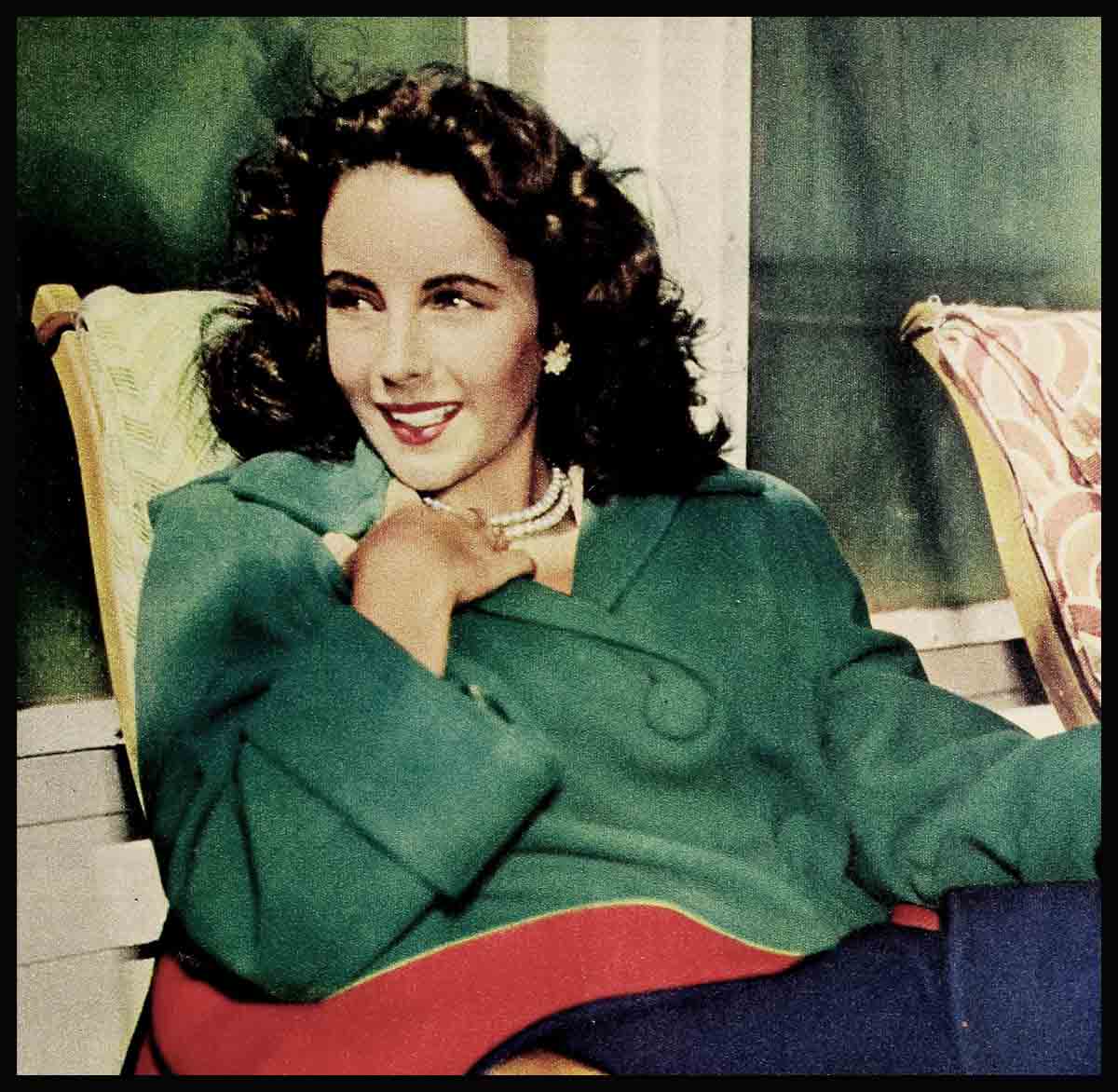
Queen Of The “Mary”—Elizabeth Taylor
It began so excitingly. Starting for England, on the Queen Mary, after having been away so long. MODERN SCREEN had sent a photographer named Bert Parry to cover the whole beautiful trip, and the sun was shining, and the water smelled good, and the feel of the deck under her feet was pure bliss.
There were a million kids on board. How they’d got there, she didn’t know. Some officers were inviting them to leave, and they were grinning, and one of the boys spoke straight to Liz. “I’m going to stow away.”
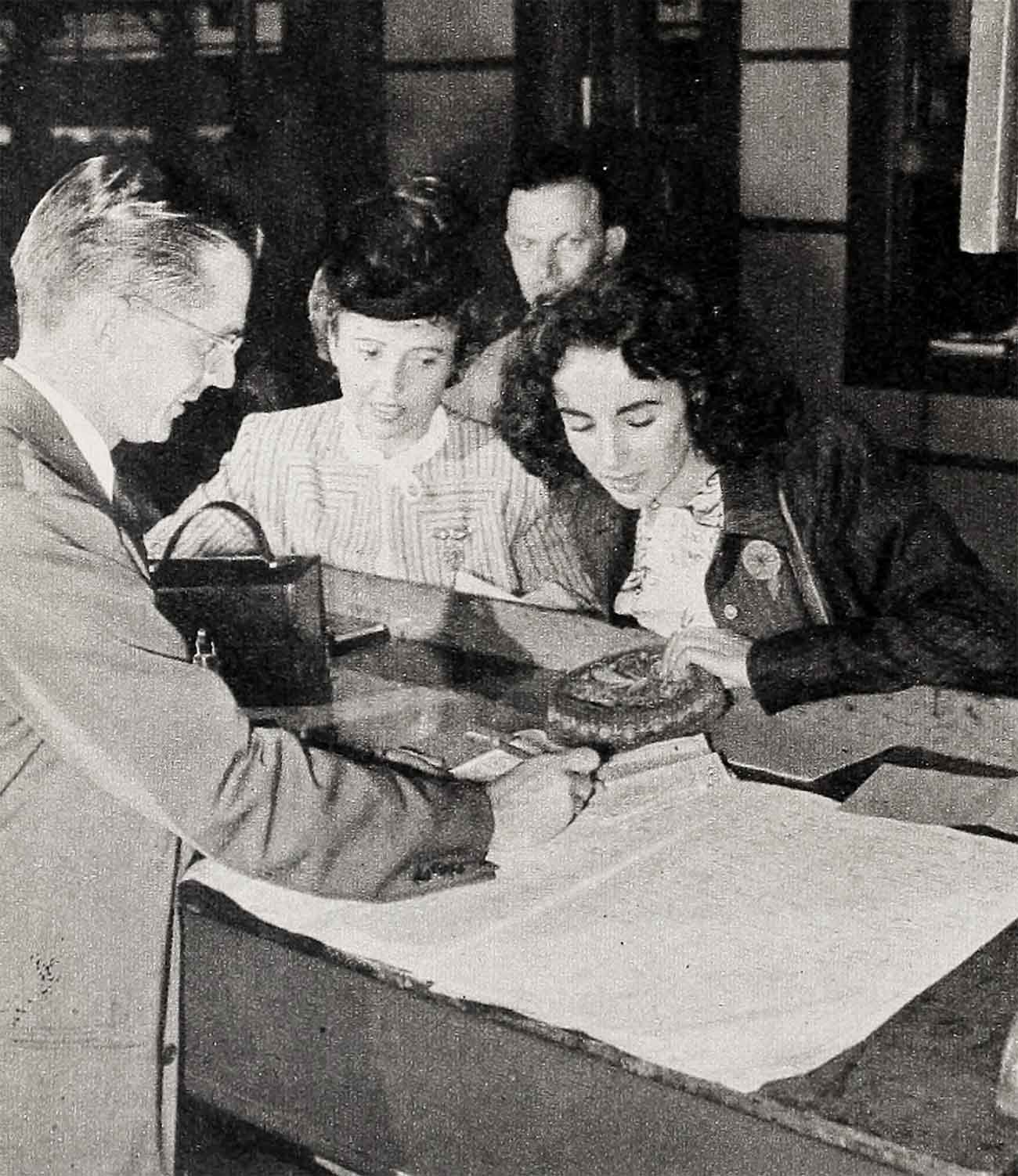
She expected him to turn up in mid-ocean. Or on mid-ocean, or however you say it.
In the cabin, there were flowers. Some from MODERN SCREEN. She sniffed them lovingly. “Oh, Mother, so sweet—”
And then she sank on the bed. “I’m tired—”
“All the interviews yesterday,” Sara Taylor said. “They were enough to tire anyone. Out on the deck, you’ll relax.”
The first day, she relaxed. She hung over the rail, she lay in a deck chair, she ate huge meals.
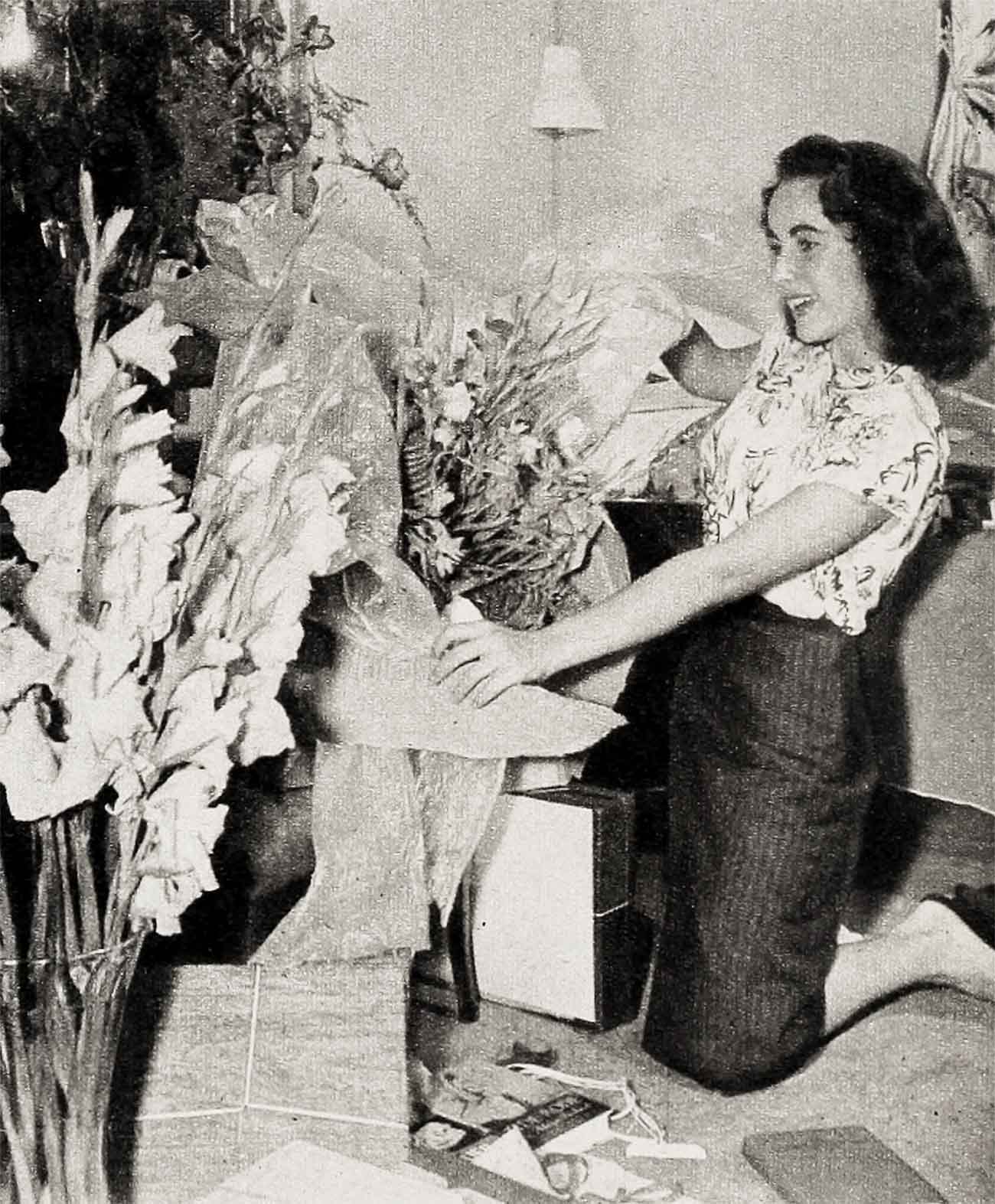
And the next day, she looked worse. “My neck aches,” she said. “And my ear.”
Mrs. Taylor called the doctor. It turned out that Elizabeth had some gland trouble; she’d suffered attacks before. “You’ll have to stay in bed,” the doctor said. “All the Way across.”
She could have cried. “I’d been counting the days,” she said. “And my head is so hot now—”
The hours seemed endless. Lady Astor, who was also a passenger, helped out. She’d come down and tell Elizabeth stories. She had a set of wax false teeth, and she’d stick them into her mouth and pretend to be a cockney flower woman. Very undignified, but funny.
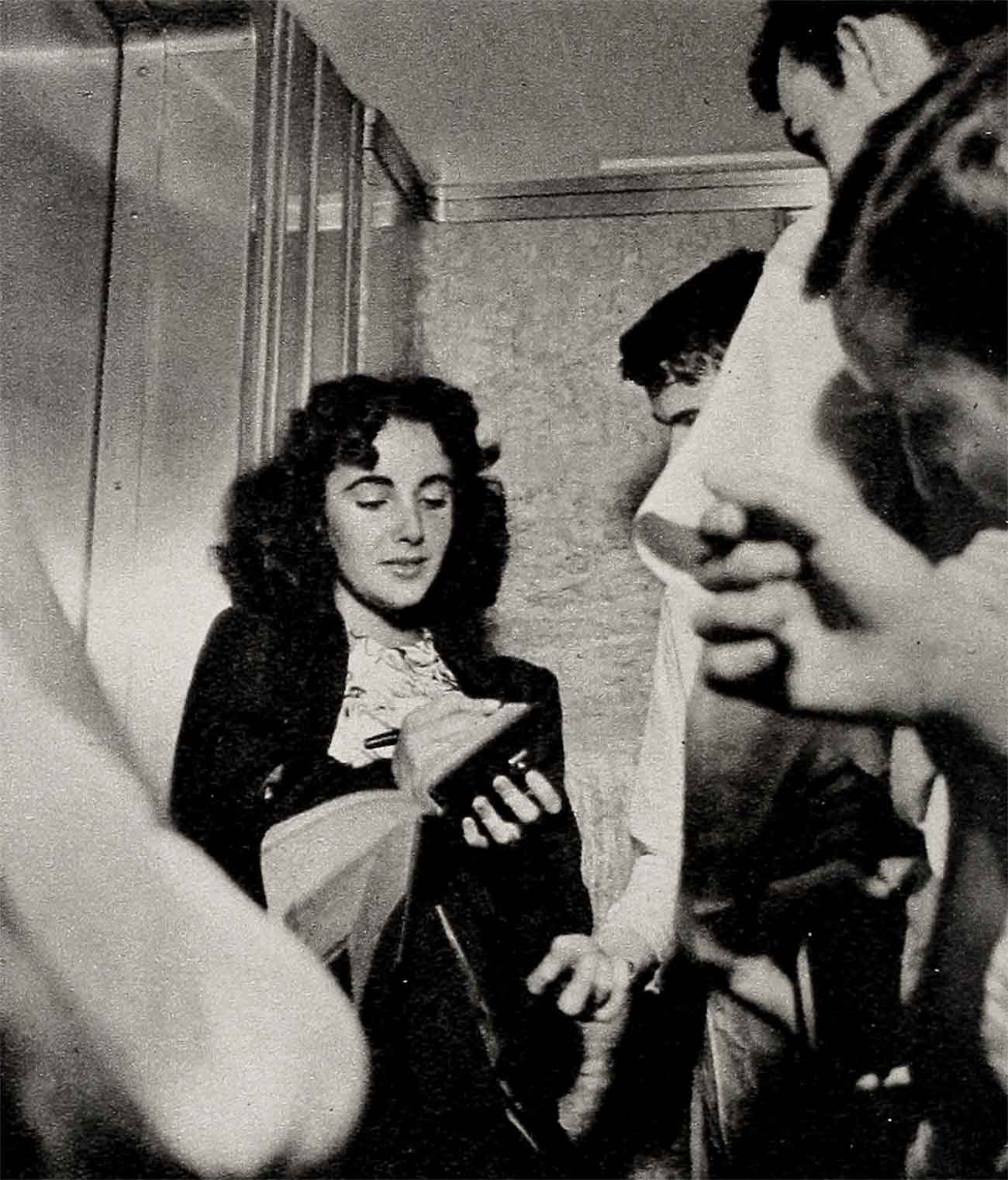
Elizabeth made a vow. “After I get home, I’m going to send you a putty nose!”
When the boat docked in London, she had a fever of 104, and she went directly from the boat to the Dorchester Hotel, and to bed.
A few old friends came to call, while she was sick. There was a woman, a Miss Lings—she came bearing a can of peaches. Peaches are solid gold in England today. “I thought the child might like them,” she said. “A little fruit is tempting when you’re ill.”
Thirty-two points is a week’s rations in England; the Taylors found out later that a can of peaches costs 23.
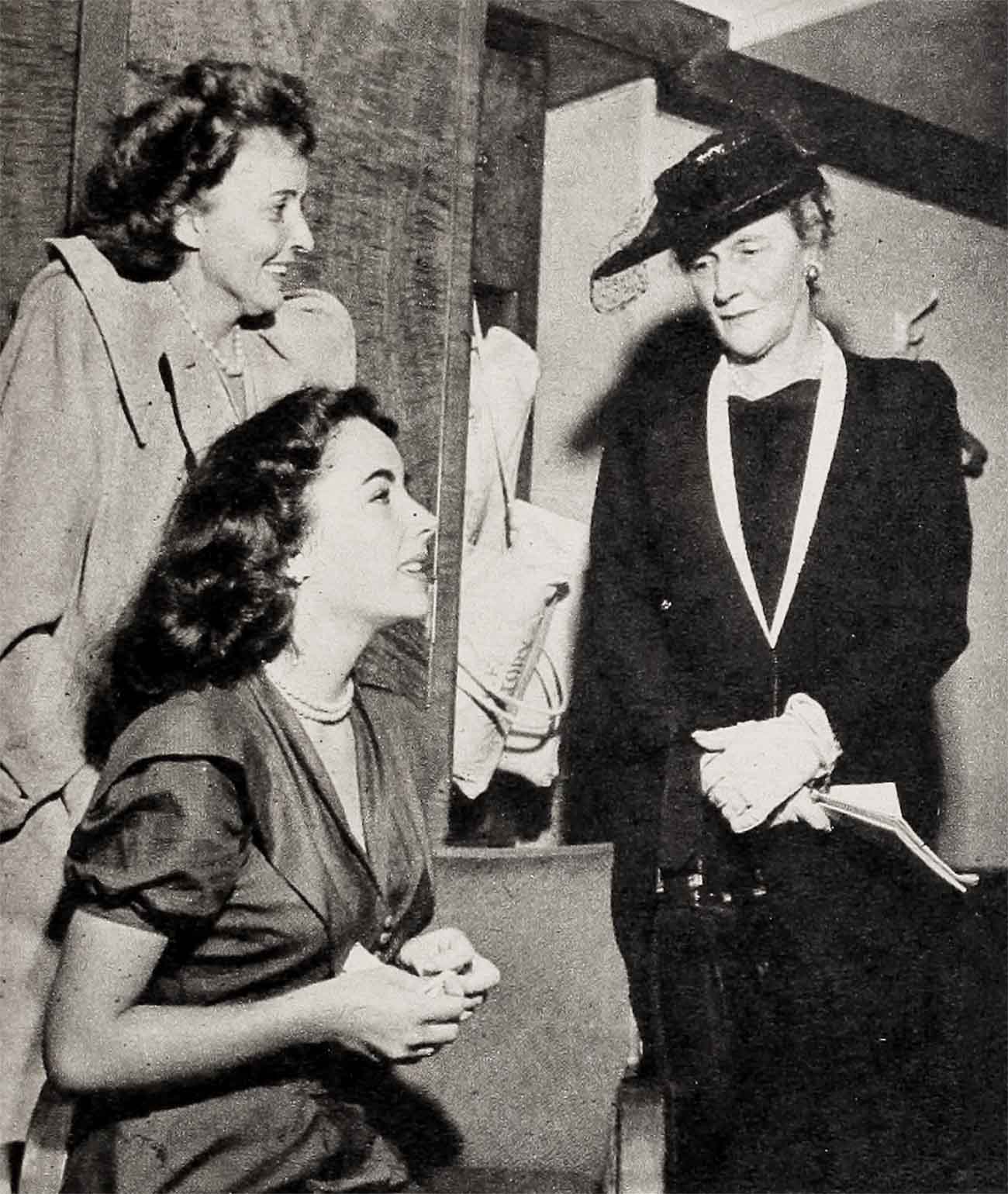
People there seem to have been made more selfless. There’s such devastation in England; families have lost so much. Once Liz was around again, she and Mrs. Taylor visited Elizabeth’s god-mother, Mrs. William Cazelett. Her husband had been liaison officer between the British and Polish Governments; he’d crashed with Sikorsky.
That night back in the hotel, Elizabeth turned to her mother. “Somehow, you don’t get the feeling that any of the people who died are really gone. I mean, the way the families talk, and all their possessions still around, you feel as if they’re in the next room.”
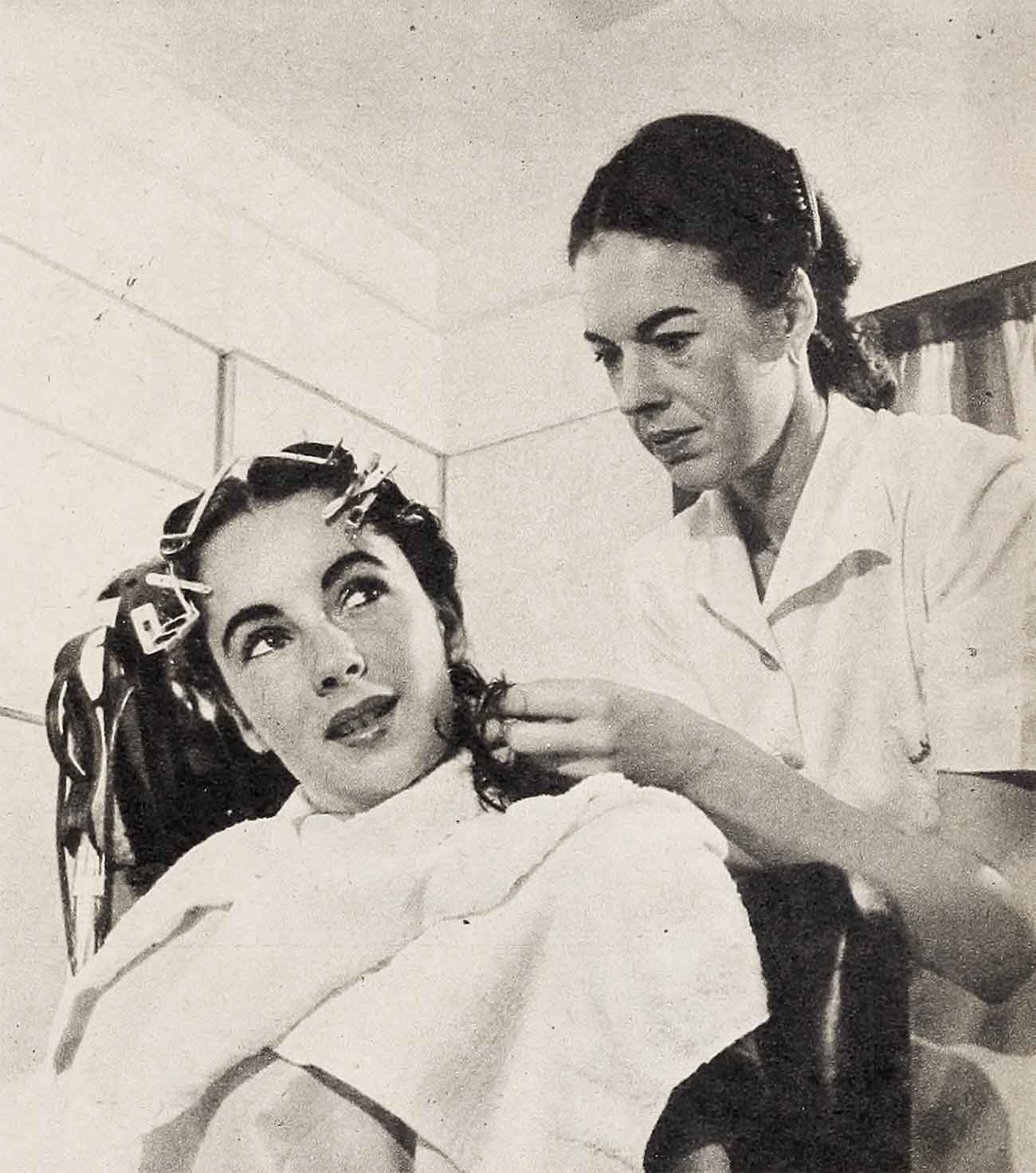
“I know,” her mother said. “It’s strange.”
The Taylors had taken clothes to give away, when they: got to England. Rationing is strict. In eight months, one person gets 32 clothing coupons. A coat: takes 20; shoes 15. But somehow, they manage. They look so well; they’re so proud; you find you can’t offer them things.
The Taylors crowded their three weeks in England. They went down to Kent, to the old house that had belonged to Liz’ god-father. There were the same trees you remembered, the same pale sky, and you felt as though you’d never been away.
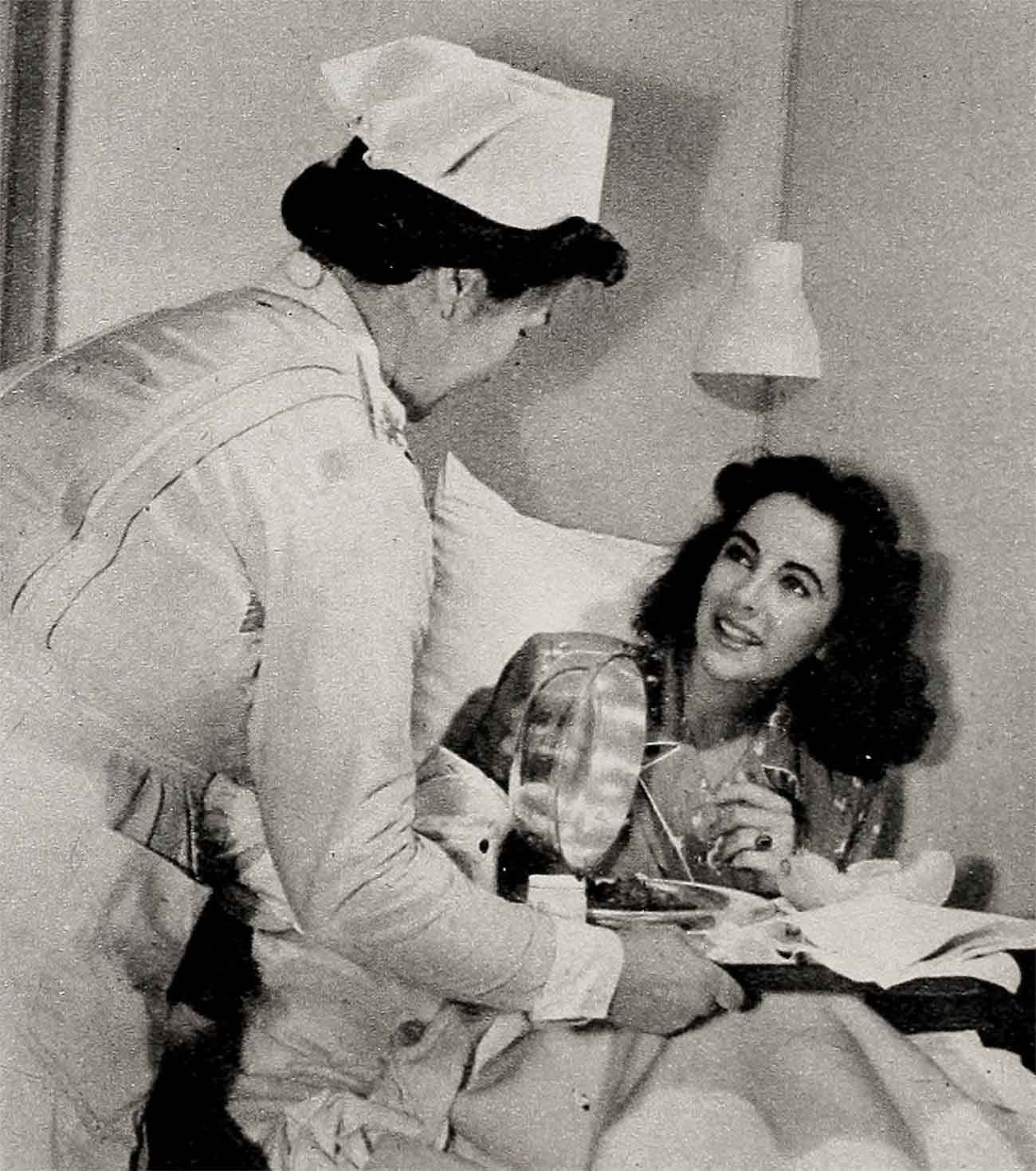
There was the pet shop in London, across from Selfridge’s. It had two French poodles, a white and a black, and to choose between them would break your heart.
When Elizabeth was sick, she’d kept asking for a poodle, and her mother had promised her the dog, if she’d drink and eat when she didn’t want to drink and eat.
Elizabeth yearned over the white poodle; her mother inclined toward the black; naturally, they ended up with both.
On the return trip, those dogs got paraded around until they were depressed.
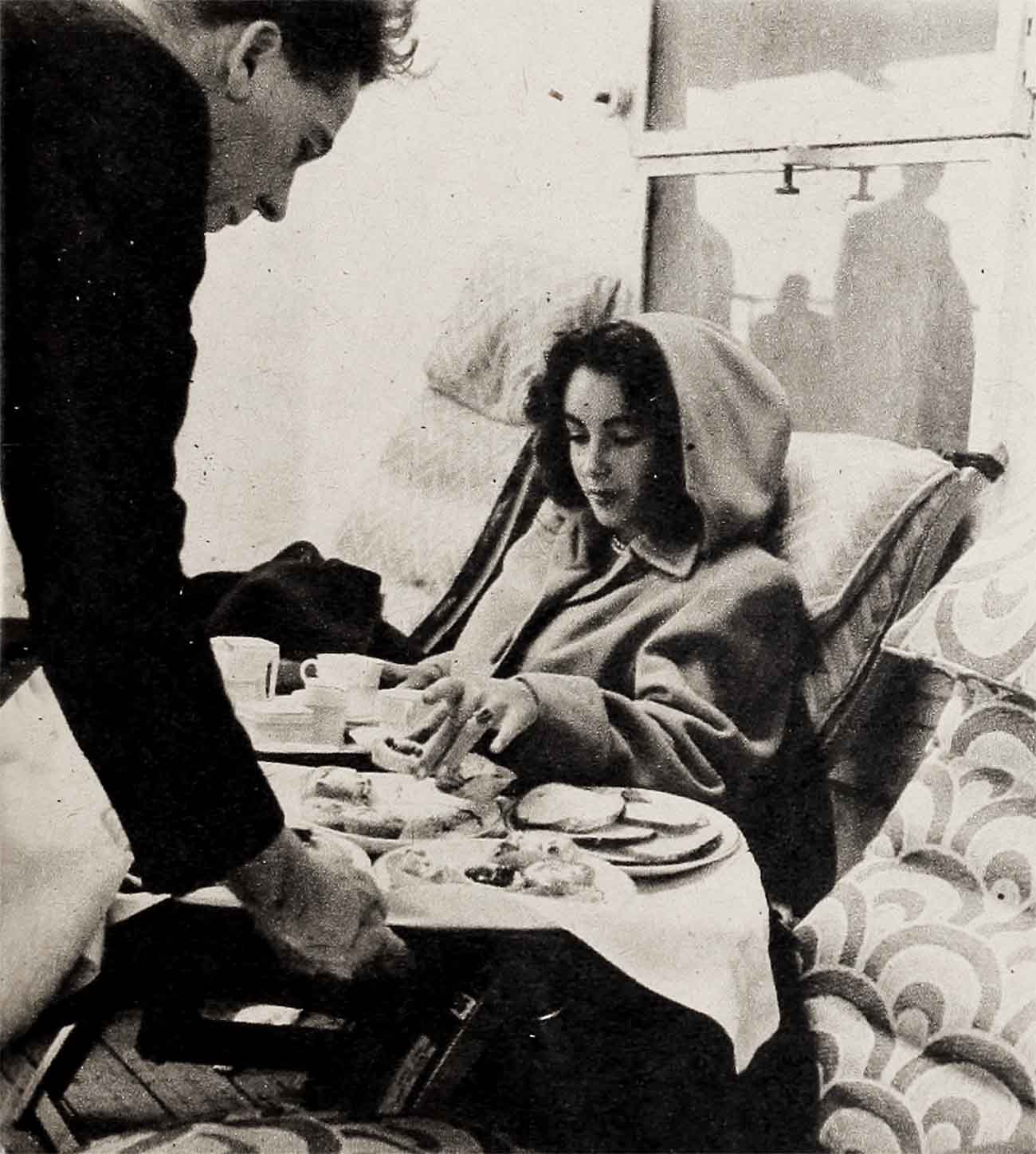
Cary Grant and Frederick Lonsdale were on the boat coming back, and they started writing Liz silly fan letters.
“I’ll be sitting in the lounge,” Lonsdale wrote once, “with a blue flower in my buttonhole. Look. me over and cough three times if you approve. After that you’ll see a man leap.”
She answered him, and asked who’d hand him his crutches. “Though you’re wonderfully well preserved.”
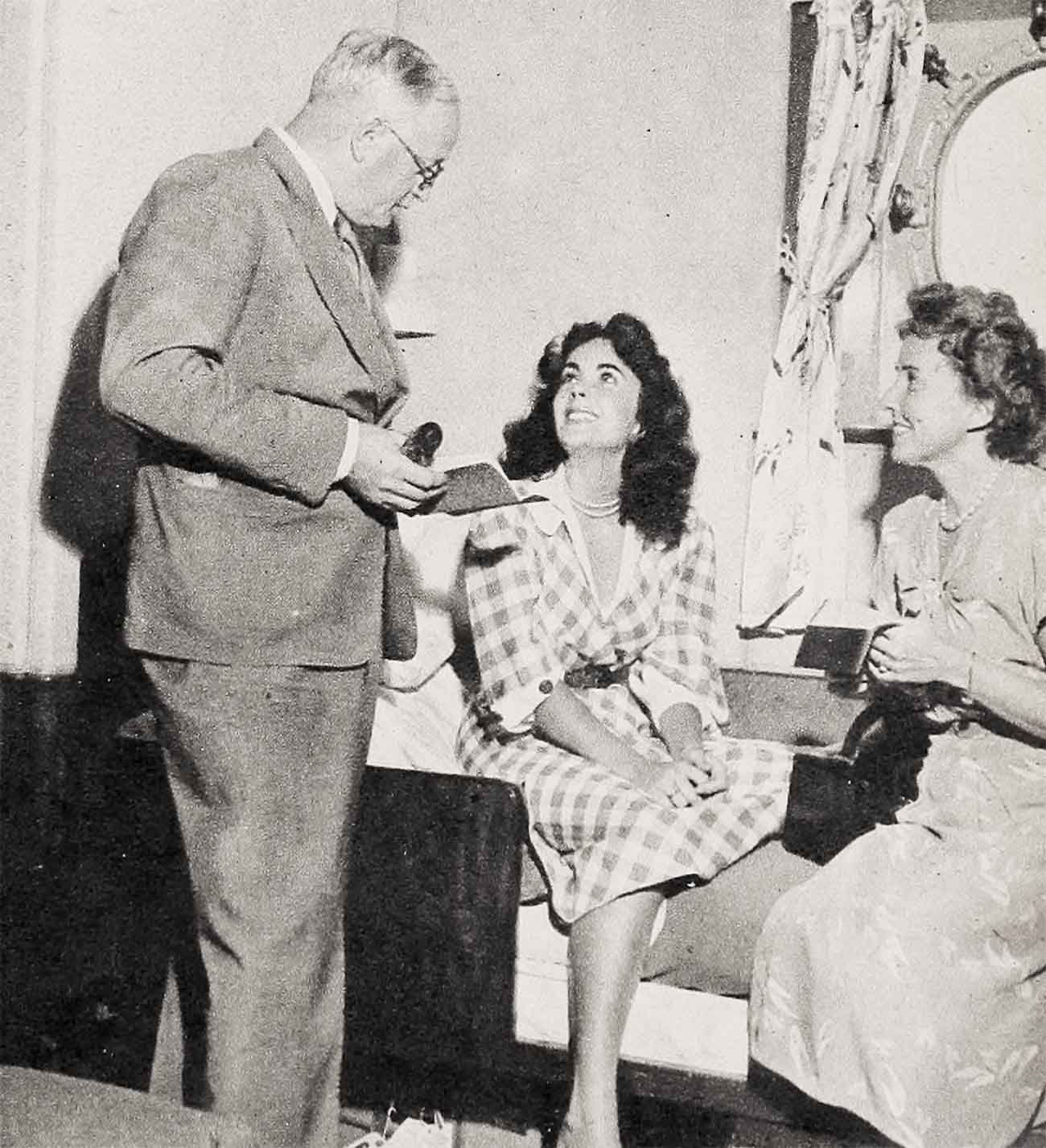
Coming back was as wonderful as going over had been painful. Liz dressed for dinner three times, and danced every night, and got moist-eyed when she saw the Statue of Liberty looming in front of her.
Partly because the vacation was over, partly because the Statue of Liberty does that to everybody.
“Next time I’m going on the slowest boat there is,” she said. And for the moment, she really meant it.
THE END
—BY CHRISTOPHER KANE
It is a quote. MODERN SCREEN MAGAZINE DECEMBER 1947




